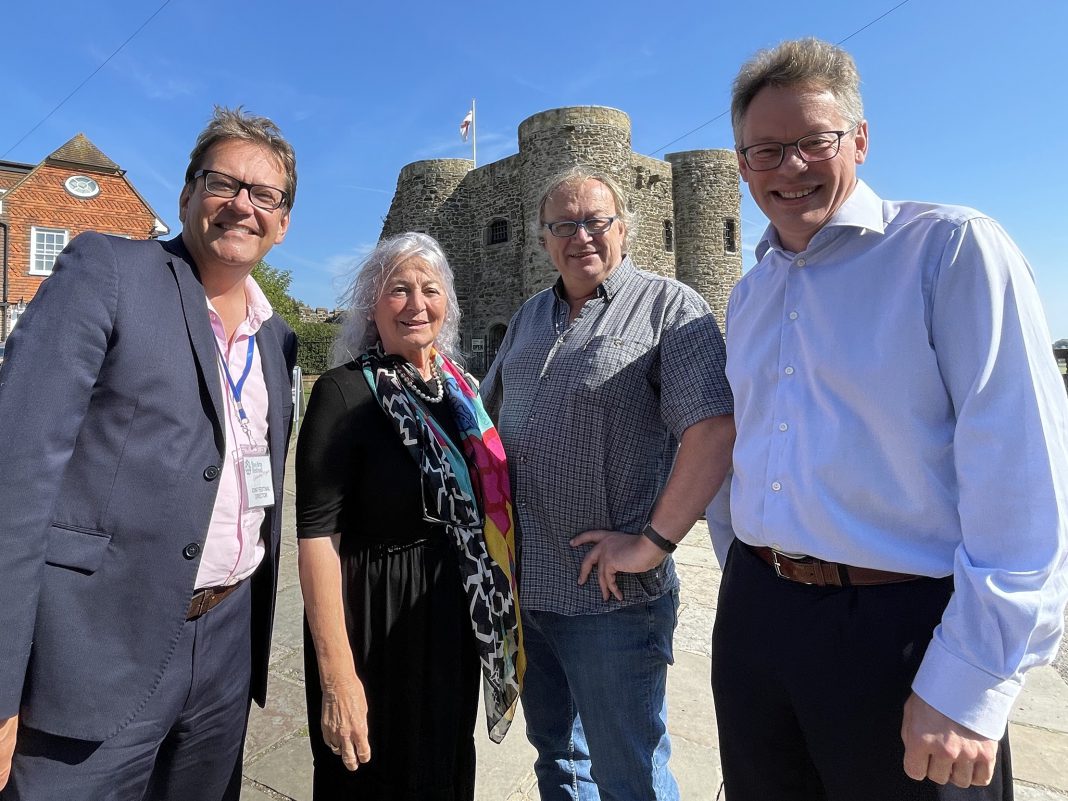For those who attended the sessions on Saturday, September 18 there was so much to absorb and learn about key figures in the world of spies and espionage. Dermot Turing spoke first.
The power of film to create pervasive versions of our history and literature cannot be underestimated. For many, an understanding of the work and significance of Alan Turing is based on the 2014 film ‘The Imitation Game’, but how closely did the historical figure resemble the movie hero?
Few could be better placed to unpick the truth than Dermot Turing, nephew of the code-breaker. For a fascinating forty-five minutes he laid before us the many facets of Alan unexplored by the film. We learned of a man better known pre-war as a mathematician and computer scientist, tasked in 1945 to design Britain’s computer (yes, only one was envisaged!). Post-war there was the interest in the mathematical foundation of pattern in flora and fauna – in the spirals of the pinecone and the spots of the leopard. Dermot accepted the challenge to sum up Alan as a human being in five ‘words’: Genius. Annoying. Fun to be with (if you were his sort of person). Untidy. Loyal.
After a short break Tania Szabo summed up the life and sacrifices of her mother Violette, who was one of the incredible women who operated behind enemy lines during the second world war. Tania spoke with warmth and told us anecdotes of her mother’s life so that we almost felt we knew her. The love and devotion that Tania displayed was moving. She spoke too of all the people who served our country with such dedication throughout the war and of the courage and bravery they had displayed. We gained an insight into Violette’s training before she went behind enemy lines, which was demanding and dangerous, and included practice at being interrogated which was brutal.
We learnt of the love story of her parents Violette and Étienne. When Étienne died, Violette suffered deeply and wanted to get her revenge. She was trained and ready to go. Forty-five minutes once again just wasn’t long enough to do justice to the memories she wanted to share. She ended with a poem because in the war many messages were encoded into poetry:
“The life that I have is all that I have
And the life that I have is yours.
The love that I have of the life that I have
Is yours and yours and yours.”
Our third speaker was David Burke, a historian of intelligence and international relationships. His talk centred mainly on his book Family Betrayal. EH Carr said, “Before you study the history, study the historian.” David gave us a brief journey through his early life and how he ended up writing history. He left school in 1970 in a “cloud of indifference” but fate had other plans for him and due to an unexpected chance meeting he began to take an interest in espionage and spying.
In 1933, Robert Kuczynski and his wife Berta arrived in Britain as refugees from Nazism, shortly followed by their six children. We learnt a great deal about them, especially Ursula, a Soviet spy, code-named Sonya. David also touched briefly on the story of Bletchley Park but time ran out and we knew there was so much more to discover.
Image Credits: kt bruce .



